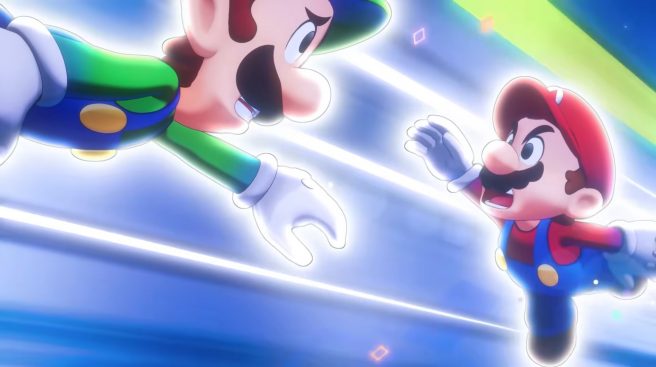Mario & Luigi: Brothership devs explain change in composers, finding ‘Mario-ness’ following Miyamoto feedback
The developers of Mario & Luigi: Brothership have opened up about what it was like creating music for the game, including shifting composers from Yoko Shimomura to Hideki Sakamoto and some initial feedback from Mario creator Shigeru Miyamoto. This information comes from a Famitsu interview with director Haruyuki Ohashi and producer Akira Otani.
Shimomura previously handled music for the series previously. However, with the franchise seeing various changes including Acquire taking on development, Otani said they “decided to get a fresh start”.
As for Miyamoto, after he checked in on the music, he felt that it was too “ordinary”. The team understood that it needed to capture the ‘Mario-ness’, but doing so wasn’t an easy task.
Below is our translation of the interview excerpt:
The changing of the person in charge of the music from Yoko Shimomura to Hideki Sakamoto must have presented its own challenges. Why was Sakamoto appointed?
Otani: The music made by Shimomura is of course highly praised by us and by fans. We did think about doing the same for this game, but development was moved to Acquire, so we decided to get a fresh start, and work with someone else. We discussed with Acquire who to request for this, and Sakamoto’s name came up.
Ohashi: Sakamoto had previous experience with Nintendo as head of music for Super Smash Bros. Ultimate, and he had also worked with me on What Did I Do to Deserve This, My Lord, so communication with him was easy.
Otani: I really loved the ending theme for What Did I Do to Deserve This, My Lord. If that was the game made by the combination of Ohashi and Sakamoto, we had high expectations for them to make great music for this game too.
Did the music-making process proceed smoothly?
Otani: In truth, capturing the ‘Mario-ness’ in the music slowed down the process. When Miyamoto looked at the game contents, regarding the music he said, “It’s too ordinary”.
Ohashi: But actually, he said it was ordinary, and he was right. From then Sakamoto and I struggled hard working out what the ‘Mario-ness’ in music was.
What was the key to solving the problem of the ‘Mario-ness’ of the music?
Otani: For this game, I suggested basing it on the image of Mario and Luigi in action. I requested that the music had a greater sense of liveliness and included more brass and percussion. Then I left it to them, and they made music that truly had that ‘Mario-ness’.
Ohashi: Since this time the game takes place journeying around a large ocean, the first direction was to make music that created a grand atmosphere. We also wanted to display the depth of the adventure by making some relaxed music too. But received feedback that it wasn’t very Mario-like, so we added more brass and under Sakamoto’s direction settled on which instruments to use. By settling on using South American instruments, all the tunes became brighter. And with our direction adjusted, things continued smoothly from there.
Thanks to Famitsu for the interview. Mario & Luigi: Brothership is available on Nintendo Switch worldwide. You might be interested in seeing Acquire’s “edgier” take on Mario with recent concept art that was shared here.
Translation provided by Philip Proctor, SatsumaFS, and Simon Griffin on behalf of Nintendo Everything.
